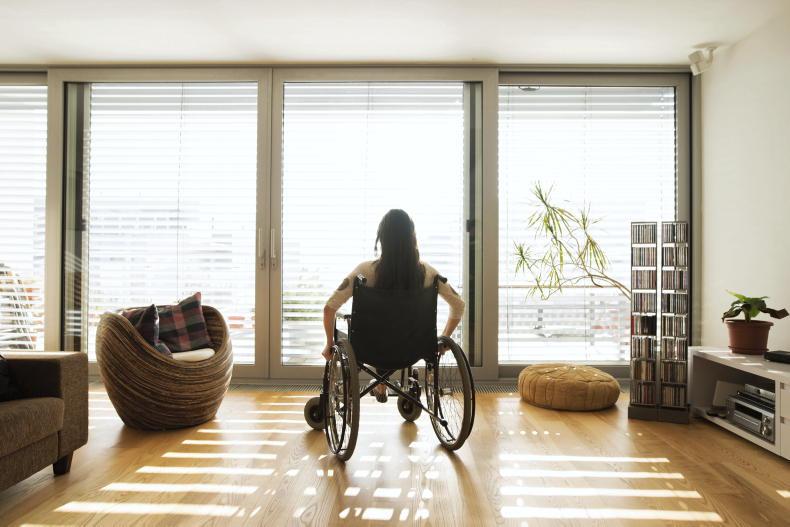Have you considered the addition of home accessories to help you feel more secure around your home?
Before making any changes to your house, it is a good idea to consult with a qualified occupational therapist (OT), who will assess your daily living needs and advise on any necessary adaptations to your home.
“As an OT visiting someone’s home, you are assessing it from a safety perspective. The need for certain additions to your home depends on ability and not age. You could require support devices at any age. There are people in their 80s who may not need them; and others in their 60s who do require them.
“We work with people from all backgrounds, but a good bulk of our cases would be people who have fallen on their farms. Farming and outdoor work is high risk. We (OTs) are there to implement preventative and smart measures to the home, before something does happen.”
Safety equipment
Key areas for OT assessment include the bathroom and stairs. Aoife shares some simple, but effective equipment; which will significantly increase the safety of your living space.
“A raised toilet seat makes it is easier to get on and off of the toilet. For someone with an injured, or bad back, it can be a major help. A shower seat takes the weight off the individual’s legs. They can simply sit instead of stand for their shower,” she says.
Often seen going into bathrooms, beside the toilet or around a shower area; Aoife strongly recommends grab rails.
“Grab rails are the most common type of safety device an OT would recommend. Again, they make a huge difference to someone with a bad back, for example.
“There is an association of this equipment with older people. People in their 20s, right up to those in their 90s may require it,” Aoife explains.
Ground-floor bedroom
Unsurprisingly, stairs and steps (both indoor and outdoor) are a huge risk factor, for all ages. They are most often where a trip or fall will occur.
“It’s important that you have a banister rail on both sides of the stairs. The slope and width of the steps would be assessed by an OT. And if you have reduced mobility – for any reason – you should ideally move your bedroom downstairs.”
If you are used to an upstairs bedroom space, relocating to downstairs can be a huge change and may take some readjusting time. However, creating a downstairs bedroom is a good idea for many reasons; if you hurt your back or become injured, climbing the stairs is not ideal. And having a ready-made bedroom on a ground level for these instances is a huge help. Plus, if/when the time comes that you need to permanently relocate to downstairs, the change will not feel as disruptive.
“If you are working with an OT, you will have a lot of support in moving your bedroom downstairs. We understand that it is a big transition when you have been used to going upstairs to bed, your whole life,” Aoife says.
Outdoors
Alert devices are especially suitable for farmers, who in general spend a lot of time on their own outdoors, are in contact with livestock and are at risk of falls and strains. Highly recommended by Aoife, she describes the device as resembling a discreet wrist watch.
“They are hugely important for anyone who is at risk of falling and especially for farmers. Let’s just say that you are out on the farm and have a fall in the middle of a field. You might not have your phone on you and even if you do, you may not be fit to reach it. If you have a wrist device, you can simply press the button and someone will be called instantly.”
As we all know, farms in general can be hazardous, but have you ever considered the risk associated with the surface or terrain of your yard? Aoife recommends a solid and even ground surface, like concrete rather than chippings. She also advises that a tidy yard could be more important than you think.
“You would often see shovels, piles of gravel and empty bags left around farmyards, which do hugely increase your risk of injury. Keeping your environment organised is so important for your safety.
Ramps are also a handy feature to have in the home, Aoife says. “People assume that ramps are just for wheelchair users. Well, actually they are for everyone, of all ages. If you have two or three steps leading you down to the farm, I would always recommend a ramp instead. They are much safer than steps.”
Visit www.sensorylivingshop.com or find Aoife on Instagram @occupationaltherapyabc for lots more advice. Contact your local health office to get in touch with an OT.





SHARING OPTIONS